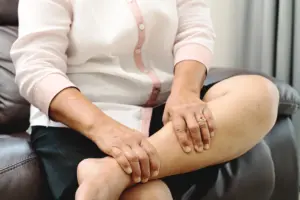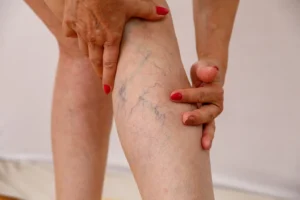
Minor injuries treatment: You twisted your ankle while jogging. It hurt for a bit, but you could still walk. So, you skipped the doctor visit and carried on. Weeks later, the pain returns, this time sharper and more persistent. Sound familiar?
As an orthopaedic doctor, I see this story unfold far too often.
Minor injuries like sprains, strains, or mild back pain may seem harmless at first, but neglecting them can set the stage for chronic pain, joint instability, and long-term damage. Here’s why early care matters more than you think.
The Domino Effect of “Small” Injuries
When you ignore a seemingly minor injury, you’re not just ignoring pain; you’re potentially:
- Allowing inflammation to worsen
- Creating abnormal joint mechanics
- Overcompensating with other muscles or joints
- Risking repeated injuries in the same area
For example, a minor knee sprain might lead to an altered walking posture, eventually causing hip or back problems. Your body adapts, but not always in the healthiest way.
Also Read | Hip pain isn’t just for seniors: Why young adults are affected too
What Happens Inside the Body?
When tissue (muscle, ligament, tendon, or cartilage) is injured, your body starts healing. But without rest, support, or therapy, healing remains incomplete. The scar tissue may form incorrectly, and chances are that your strength levels and flexibility may be compromised.
Such neglect leads to weakness, stiffness, and a higher chance of re-injury.
Small Delays, Big Consequences
Here are common injuries that worsen over time when ignored:
- Ankle sprains can turn into chronic instability or arthritis
- Back pain can turn into disc issues or nerve compression
- Shoulder strain can turn into rotator cuff tears
- Wrist pain can turn into tendinitis or carpal tunnel syndrome
What could’ve been resolved with rest and physiotherapy may eventually need injections or even surgery.
Your Body Is Talking. Are You Listening?
Pain, swelling, or restricted movement, even if mild, are signals. Don’t silence them with painkillers or “wait it out” for too long. A quick checkup can rule out serious issues and set you on the right path to healing.
Also Read | Chronic hip pain: Causes, diagnosis, and solutions
Prevention Is Better Than Regret
Here’s what I recommend:
- Rest, ice, compress, and elevate (R.I.C.E.) immediately
- Avoid “pushing through” pain
- Seek professional evaluation if symptoms persist beyond 48 hours
- Follow rehab protocols if prescribed
- Resume activity only when fully recovered
Your body is your lifelong companion. Treat it kindly, even when the issue feels “too small” to matter. What you ignore today may demand your full attention tomorrow.
Disclaimer: This article is for informational purposes only and should not replace medical advice from your doctor or healthcare provider.








